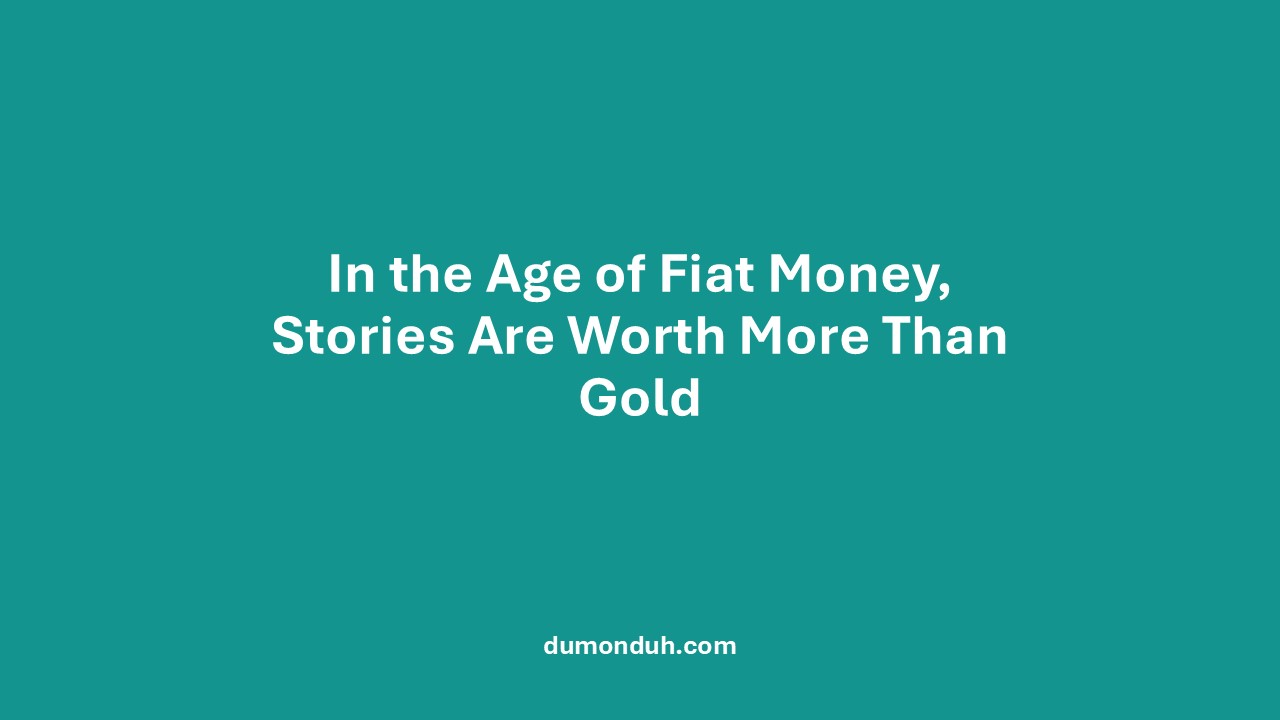In the world of fiat money, stories are far more valuable than gold. Because today, value isn’t about how much precious metal you own — it’s about how deeply you can make people believe. Our money no longer represents something tangible; it represents a shared story, a collective illusion that paper signed by the government holds worth, as long as everyone agrees it does.
At that point, the modern economy turned into a game of trust. The Federal Reserve no longer moves markets through numbers, but through words. One sentence from Jerome Powell can redirect trillions of dollars. A single headline on Bloomberg can lift global stock indexes overnight. We live in an era where trust matters more than truth, and perception can overpower reality itself.
The Power of the Narrative
Look at how the story is played: when inflation soars, they call it transitory. When the economy slows, they promise a soft landing. When markets panic, the magic phrase appears — “we will do whatever it takes.”
These aren’t explanations; they’re psychological instructions. And the markets — living creatures fed by hope — immediately respond.
Fiat money has no intrinsic value. There’s no gold backing it, no physical guarantee behind it. Its worth survives only because everyone collectively pretends it’s real. It’s like a grand theater, where every actor knows the script is fake, yet performs as if it’s true. That’s why narrative has become the fuel of modern finance — because without belief in the story, the entire structure could collapse in a single day.
Gold: The Silent Witness
Ironically, in this hyper-digital world, the most ancient and tangible asset — gold — is often seen as outdated. Yet every time the system begins to lose credibility, that “old metal” gets called back to the stage.
Because gold doesn’t need trust — it is trust.
Gold makes no promises, pays no interest, and manipulates nothing. It simply exists. And in its silence, it exposes the lies of a monetary system built entirely on words.
If you look closely, every major crisis in the 21st century began with the cracking of a narrative:
From “subprime is contained” to “QE is temporary” to “inflation is under control.”
Each time the public realizes the story was false, markets react — and gold stands quietly as the witness to the collapse of illusion.
The Last Chapter of Every Financial Lie
So when you ask why gold’s value endures — even in an age of algorithms, crypto, and digital banking — the answer is simple:
The world can print unlimited money, but it can’t print trust.
As long as fiat money lives off stories, gold will always be the final chapter — the truth revealed after every economic deception.
Because eventually, markets always return to reality.
And in a world where everything can be manipulated — data, headlines, promises — the truth is not something you read or trade. It’s something you can hold. Something heavy, cold, and incorruptible.
It’s not dollars.
It’s not stocks.
It’s not crypto.
It’s gold.

